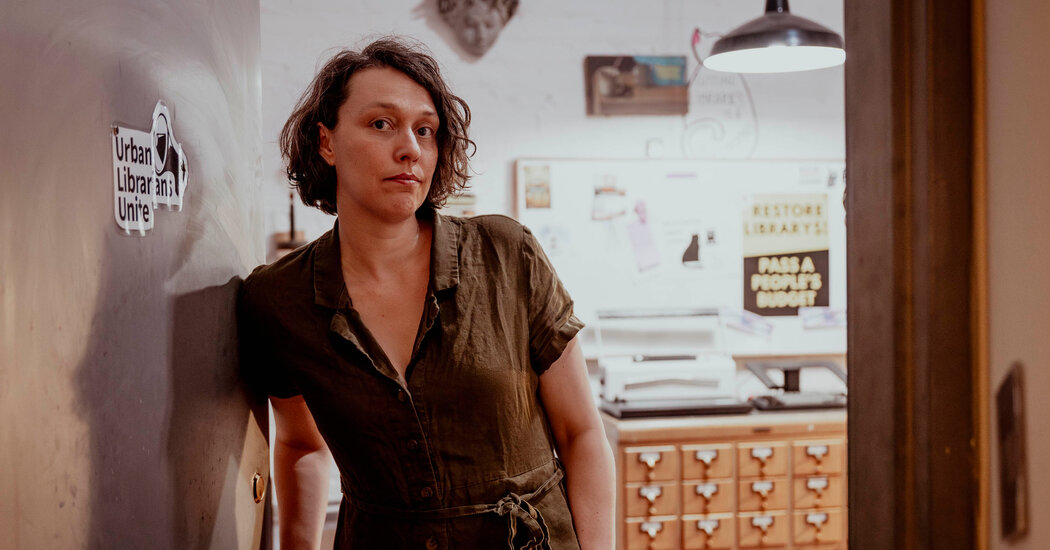As libraries become public stages for social problems — homelessness, drug use, mental health — the people who work there are burning out.
On social media, Mychal Threets was spreading the gospel of “library joy” to hundreds of thousands of followers.
Known for his energetic delivery and signature Afro, Mr. Threets showed off the book-themed tattoos covering his arms and evangelized about the pleasure of reading while cradling one of his cats. Viewers found his enthusiasm for literature infectious, and he got a kick out of drawing in young readers.
But at his job, as a supervisor at the Fairfield Civic Center Library in Solano County, Calif., he was facing new challenges. The library, which he had begun visiting as a child, had become a gathering place for people experiencing issues like homelessness, drug dependence and mental illness.
Some of his duties had little to do with cataloging books and recommending titles. Over a year, Mr. Threets said, he filed more than 170 incident reports documenting how library patrons had acted out: property damage, harassment, physical altercations.
“There were several instances where people would get in my face and kind of threaten to physically push me,” Mr. Threets said. At one point, he added, a patron threatened to kill him multiple times — visitors pulled knives on each other, too.
His anxiety and depression, both present since childhood, had worsened. And he faced an impossible dilemma: What do you do when the pressures of your profession are harming your mental health?
